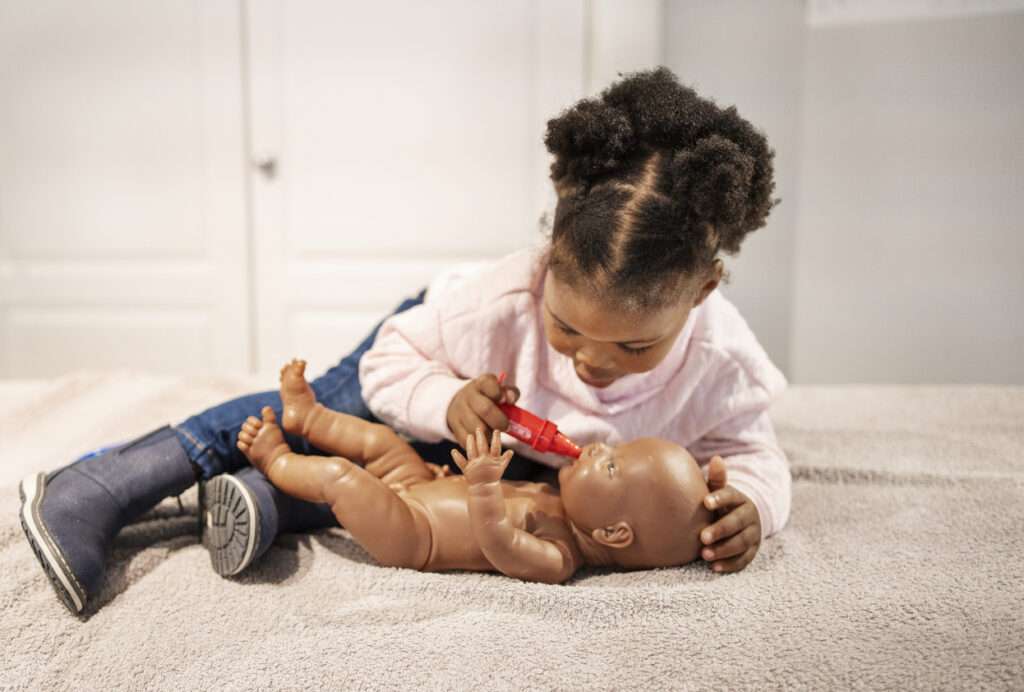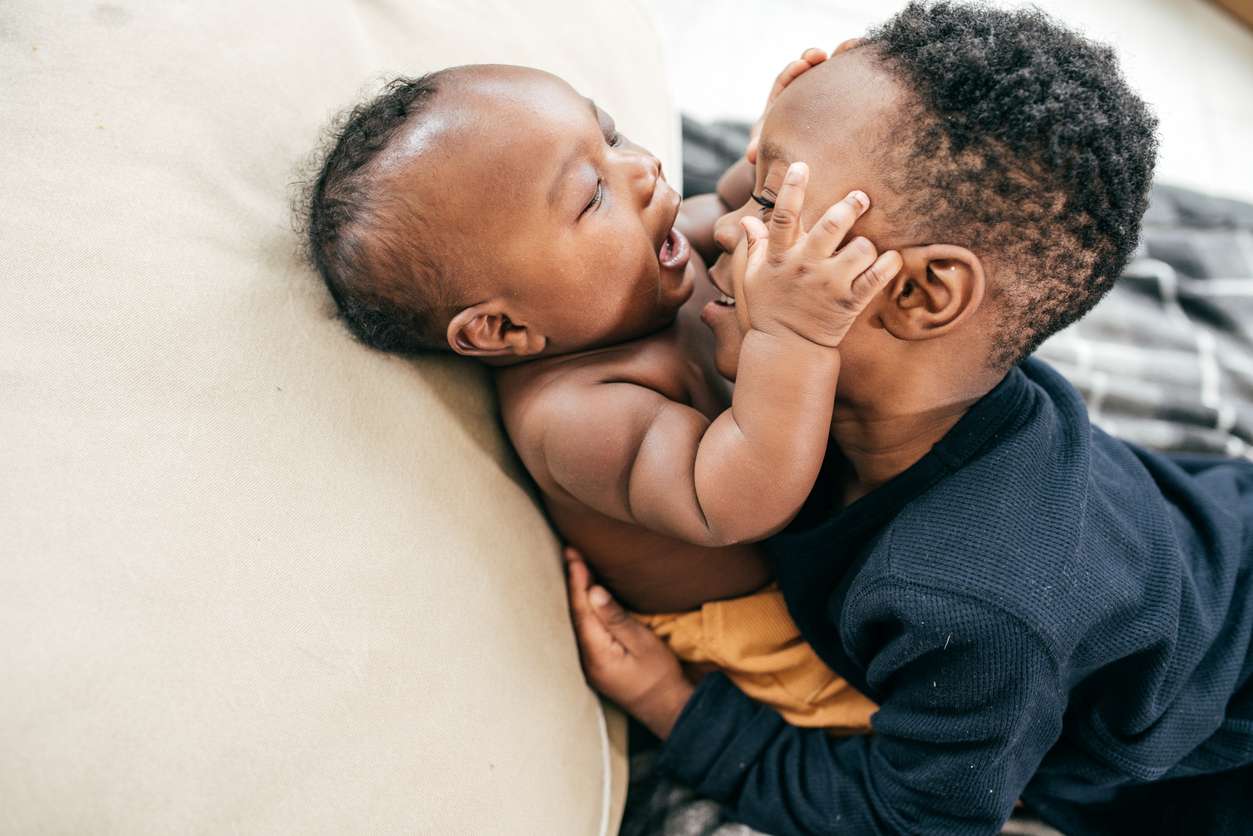Welcoming a baby to the family can be an exciting time, but it also impacts the existing family dynamic and lifestyle. First-time siblings may be overwhelmed and confused by these sudden changes that come with a new baby.
However, parents can help soon-to-be siblings get ready for the changes ahead. Check out these five tips that can help children prepare for becoming first-time siblings.

- Set expectations
Communication is key to setting first-time siblings at ease. Begin by explaining the care newborns need. Make sure to emphasize that just because the baby needs more time and attention doesn’t mean that an older child is being replaced.
Also, discuss what it means to be an older sibling and how they can help take care of the baby. By setting these expectations, your older child will be better prepared for the adjustments and responsibilities that come with the arrival of a younger sibling.
- Practice gentle touch

It’s important to teach young children how fragile newborns are, especially if your older child is around a year old. Practice gentle touch with your child so they know how to handle their sibling with care.
A great way to practice gentle touch is with an interactive play toy. For over 30 years, parents and grandparents have relied on these toys that foster compassion and nurturing play and teach developmental skills to young children.
A baby doll or stuffed animal is the perfect first companion for your little one, and both are ideal for cuddles. You can safely teach your older child how to nurture and care for their future sibling.
- Include them in the baby’s routine
A great way to help first-time siblings feel included is to involve them in the baby’s daily routine. How involved they can be will depend on their age, but even small tasks like singing a lullaby or picking out the baby’s clothes can create a bond between siblings.
Children around age 3 and older can practice with a doll or stuffed animal. A lifelike doll or toy can make baby sounds, sucks on her bottle or pacifier with an actual moving mouth, goes potty, goes to sleep, and even cries real tears.
Once the baby arrives, encourage your older child to take care of their doll while you take care of the baby. When your newborn needs a diaper change, your older child can change their baby doll’s diaper. By including them in these activities and routines, you can foster a sense of responsibility and love between siblings.
- Encourage siblings to participate in the baby’s milestones
First smiles, first words and first steps are memories families cherish forever. As your younger child grows, encourage your older child to help their sibling reach important milestones.
For example, before the baby arrives and while they’re small, your older child can practice helping a baby learn to walk with a doll.
- Nurture sibling play
Sibling playtime is an important part of child development for older and younger siblings. By playing with their younger siblings, older children can help them develop social skills, communication abilities and emotional intelligence, as well as gain more of these skills, too.
Of course, some activities will be too advanced for newborns. Your child can practice playing with their siblings by including their baby doll in their solo playtime.
With some love, patience and forethought, you can easily prepare first-time siblings to welcome the newest addition to the family.
By: Brandpoint (Edited by d-mars.com)







